
The difference we made in 2024: Routes to scale



The difference we made in 2024: Routes to scale

It’s simple enough in theory: make it attractive, make it easy to take action, and get lots of people involved.
At Hubbub, we’ve spent over a decade testing ideas in real-world settings to see what really works. As you read about our recent impact, I hope you see what I see: an organisation that’s learning fast how to make environmental action the norm.
That’s ambitious already, but we need to go further. Our goal isn’t just to demonstrate the strong public support for environmental action, but to actively build that support. This will create a powerful mandate for change, empowering business and government to make bold, necessary decisions. In a polarised world – and with the clock ticking –the culture shift we’re working to create has never been more critical.
That’s why we’re so proud to work with leading businesses to tackle environmental and social challenges at scale. In these pages you’ll read about how the Co-op's support has grown the Community Fridge Network to 700 locations, distributing the equivalent of 24 million meals’ worth of surplus food. You’ll find out how Starbucks has helped us create hundreds of nature hubs, bringing green spaces to those who need them most. And you’ll learn how our work with Virgin Media O2 is tackling e-waste and boosting digital inclusion. These partnerships demonstrate the power of collaborative innovation, setting a precedent for other bold businesses to follow.
You might also notice how much of our work is deeply rooted in communities. As each year passes, we’re seeing more and more how environmental and social issues are
connected, and that fixing them requires a joined up approach. We’re supporting over 1,000 community groups with funding, advice and skill-sharing. And in turn, they’re teaching us a lot about what it takes to create change at scale.
Meanwhile, the need for inspiring, effective and accessible environmental communications has never been greater. In a world saturated with messages, environmental campaigns need to cut through the noise. Our Eat Your Pumpkin and Find Your Oooh… campaigns did just that, reaching millions and making a measurable difference.
Finally, we returned to our roots this year with a major project researching the barriers preventing UK households from making changes in support of net zero goals. This project brings together everything we specialise in: insight, behaviour change, communications, cross-sector partnerships, and real-world stories that can inform both business and policy in this crucial decade.
We can’t do any of this alone – huge thanks to all our collaborators for their energy, ideas and support. We hope you find inspiration here, and we'd love to hear your thoughts.
- Alex Robinson, Hubbub CEO
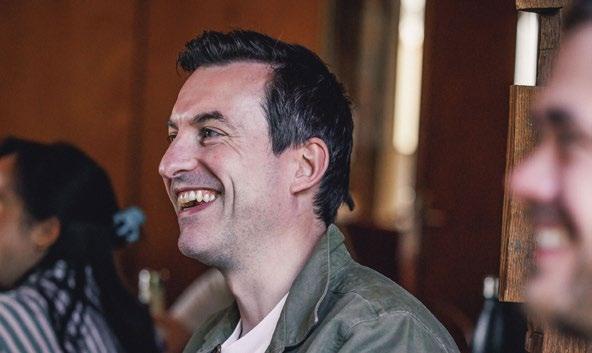

At Hubbub we create change at scale, not just by inspiring individual actions, but by working towards fundamentally shifting the systems that shape our choices – from what's available to what's affordable to what's considered ‘normal’. We're testing and proving new solutions, then sharing the learnings from these projects with businesses, government and civil society, so everyone can be part of enabling and inspiring the change we need.
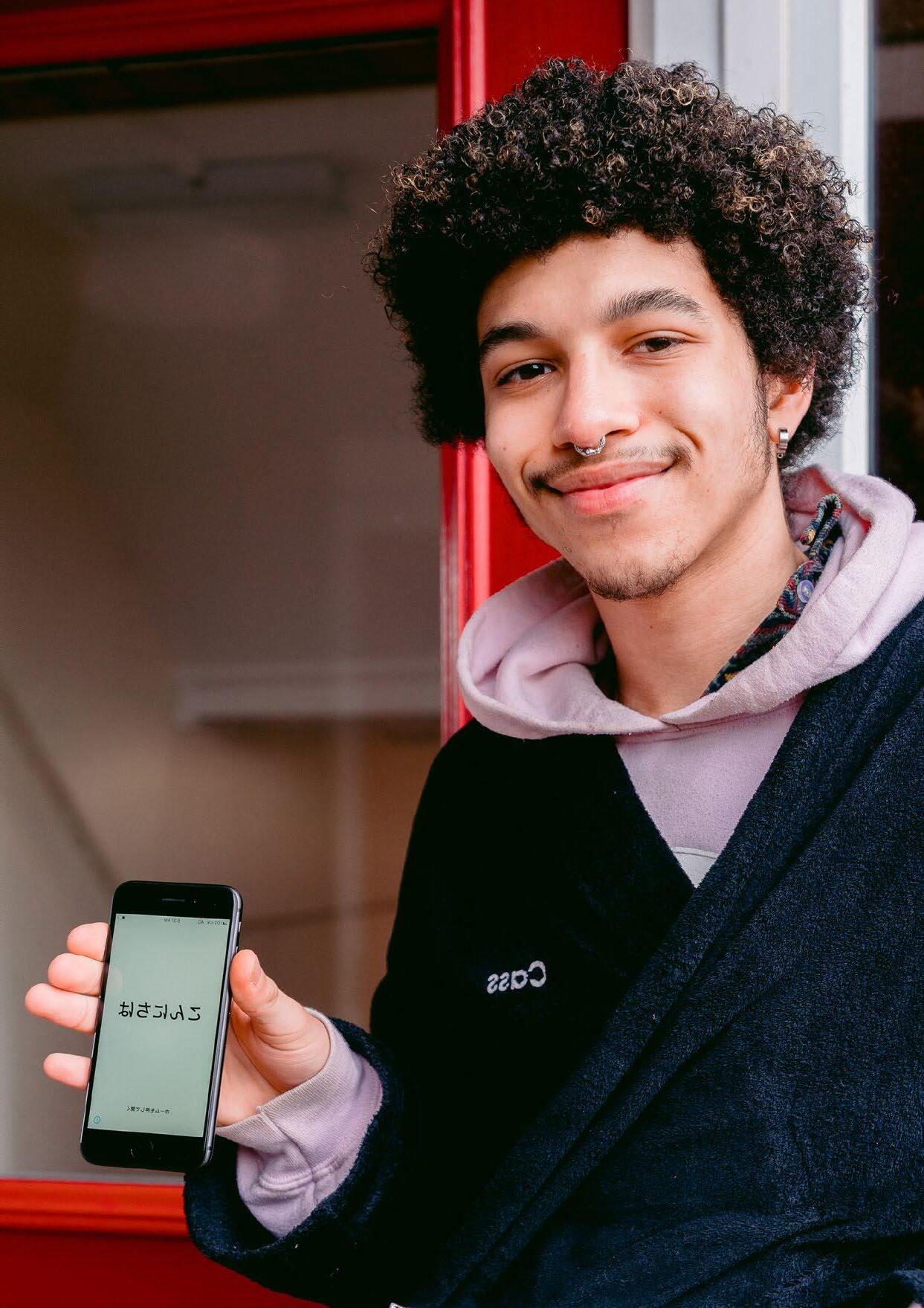
2
1 Community-led environmental action Creative comms that engage new audiences
3
Research and behaviour change pilots to test then scale
It’s been an oasis of calm for me at a difficult time in my life. It’s given me the opportunity to just ‘be’ - enjoying nature, getting to know others and instilling a huge amount of hopeespecially when things I have planted grow!”
At Hubbub we’re passionate about bringing people in the UK closer to nature, and nature closer to people. Last year, we took significant strides towards this goal.
Eight in ten of us feel better after time in nature: it makes us happier. Despite this, almost four in ten people in the UK spend less than an hour a week in nature.1 Research (including our own) shows there is a link between contact with nature and
pro-environmental behaviours and, while more research is needed on the cause, our work suggests there is a positive social and community element that keeps people coming back and makes them more likely to act. Hubbub’s community connections, grant funding model and communications experience mean we’re well-placed to help communities and people benefit from nature.
The Community Nature Network brings together a collective of communityled green spaces to help them thrive: providing funding, resources and peer-topeer support through an online platform and network map. It draws inspiration from our successful Community Fridge Network.
The network builds on our understanding of the significant social and environmental impact of community-led nature projects, and the support they need to be more resilient.
Why? Communities say they want to work together to build greener local spaces. Through the Community Nature Network, they can access the money, skills, and ideas to make it happen and get more people involved.
457 individual members + 182 groups on the network map
An estimated 15,000 visitors to green spaces in the network
Behaviour: more people spending time in green spaces, and taking part in nature activities
So far, we’ve supported groups through two strands of activity:
With the support of Bentley Environmental Foundation, we’ve funded 26 groups to create green spaces and engage new audiences. In just three months, they’ve engaged nearly 2,000 people and reported significant improvements in wellbeing for three-quarters of their participants (based on a survey of 77 people).
The Nature Hubs Fund, supported by Starbucks, has granted 100 UK
community groups funding of up to £6,000 to create or enhance green spaces, especially in areas where access to nature is limited. They range from transformative new community gardens to climate-resilient spaces. And by involving people from all walks of life, they’re helping to build a more inclusive and equitable environmental movement. So far, over 12,000 people have taken part in Nature Hub activities. And the best part? There are more Nature Hubs on the way!
1 Nationally representative polling of 3,000 people carried out by Censuswide in April 2024
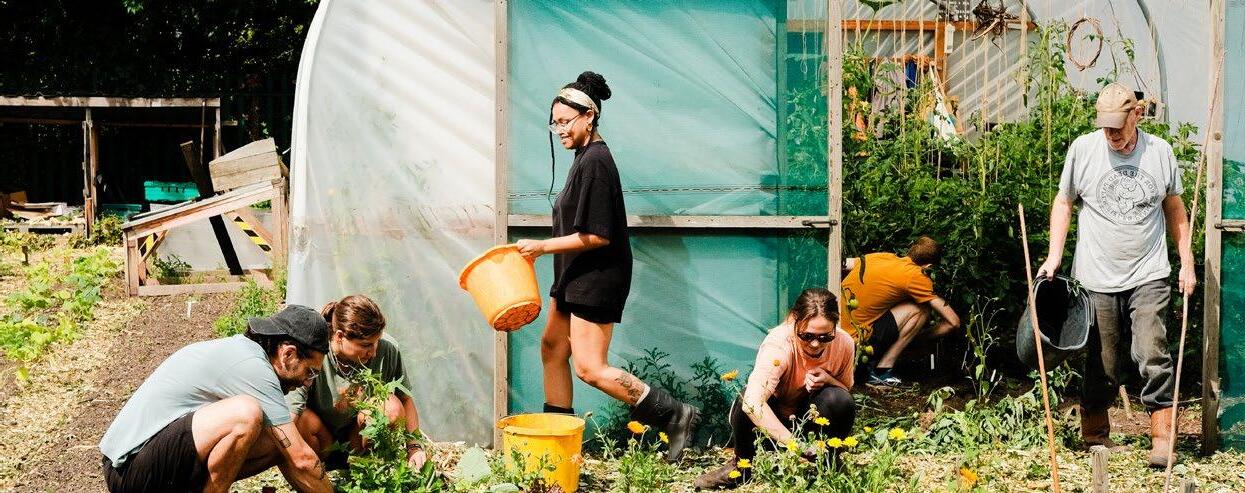
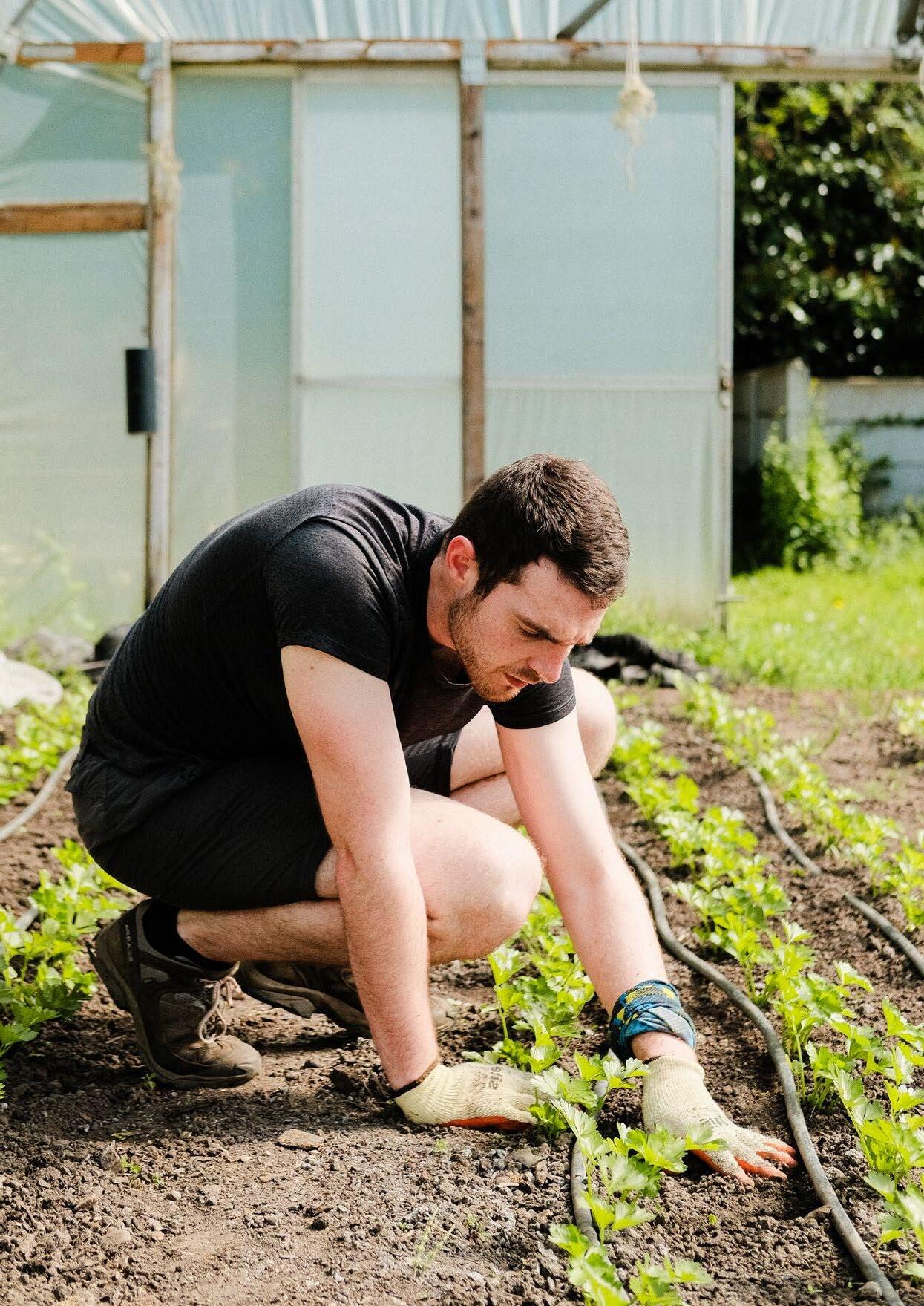
We hosted a two-week work placement for a young person with additional needs to get involved in the community toolshed build. His mum told us that it was the most time he'd spent outdoors in years as usually he hides away in his room on his computer. He learnt new building skills, spent time chatting to all sorts of people, tried veg grown at the site that he wouldn't usually eat and spent time outdoors in nature purposefully contributing to a wider project"
The Greener Communities Fund, a joint initiative by NHS Charities Together and Hubbub, was established in 2022 thanks to funding from Starbucks. The fund aims to enhance or create access to green spaces in healthcare settings, building on the well-documented evidence of the positive impact of nature on health and wellbeing. In its first year, the project distributed £1.2 million to nine projects, providing financial support along with guidance on how to manage nature projects in healthcare settings. The second round of funding is currently underway, supporting an additional
eight projects which are scheduled for completion in spring 2025.
One such project, Grow Well, is a green social prescribing programme operated by Cardiff Vale Health Charity, which uses therapeutic community gardening to improve the health and wellbeing of patients. The funding has helped them relandscape the site and deliver 124 weekly therapeutic growing sessions: harvesting over 70kg of vegetables, which are then shared with participants in the on-site community kitchen.
Why? Nature can improve health and wellbeing, but it can be difficult to access in hospital
4,736 beneficiaries took action in a funded green space that increases nature connection
60 of 65 patients agreed or strongly agreed the green space had improved their wellbeing

Behaviour: more people experiencing the benefits of nature for wellbeing in healthcare settings
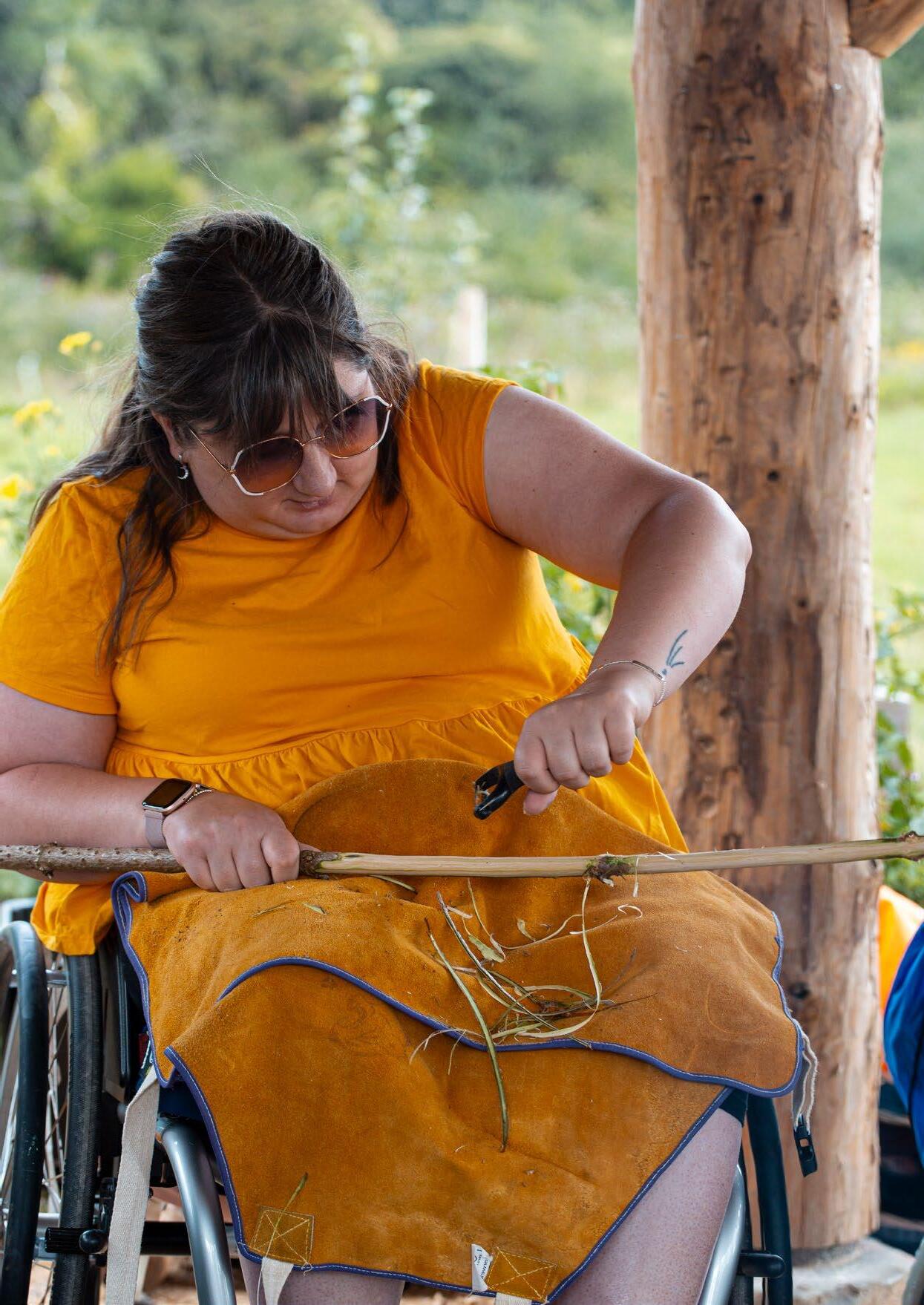
Gardening, being hands-on with plants and nature, slowing down and observing more closely, has had such a calming effect on me… I really enjoy being part of the team and I always come away feeling more connected, positive and happy.”
- Grow Well participant
I have lived locally for a number of years. I’ve learned so much and found a great group of friends. The produce has been a real help as well, especially with finances being tight."
- Growing participant
Community fridges are a tried and tested way to save good food from going to waste. But they’ve always been more than just a fridge – the people that run them are full of ambition and ideas to enrich their local communities. So, food hubs were developed as a way for Hubbub to extend the amazing work community fridges are already doing, by funding them to bring
more activities to their community. From plant-power cooking workshops and community dinners to grow-your-own gardens and libraries of things, these hubs have grown into vibrant centres for sharing and learning and in turn, have boosted their social and environmental impact.
Why? Community fridges have become places where communities connect, so we’re building on this momentum to inspire and enable even more environmental action
Since 2023, 9,197 people have taken part in activities at more than 100 food hub projects
855 people transformed their habits or learned a new skill
Behaviour: more communities growing food locally; sharing fresh food to prevent it from going to waste, and making the most of the items we already own to reduce buying new
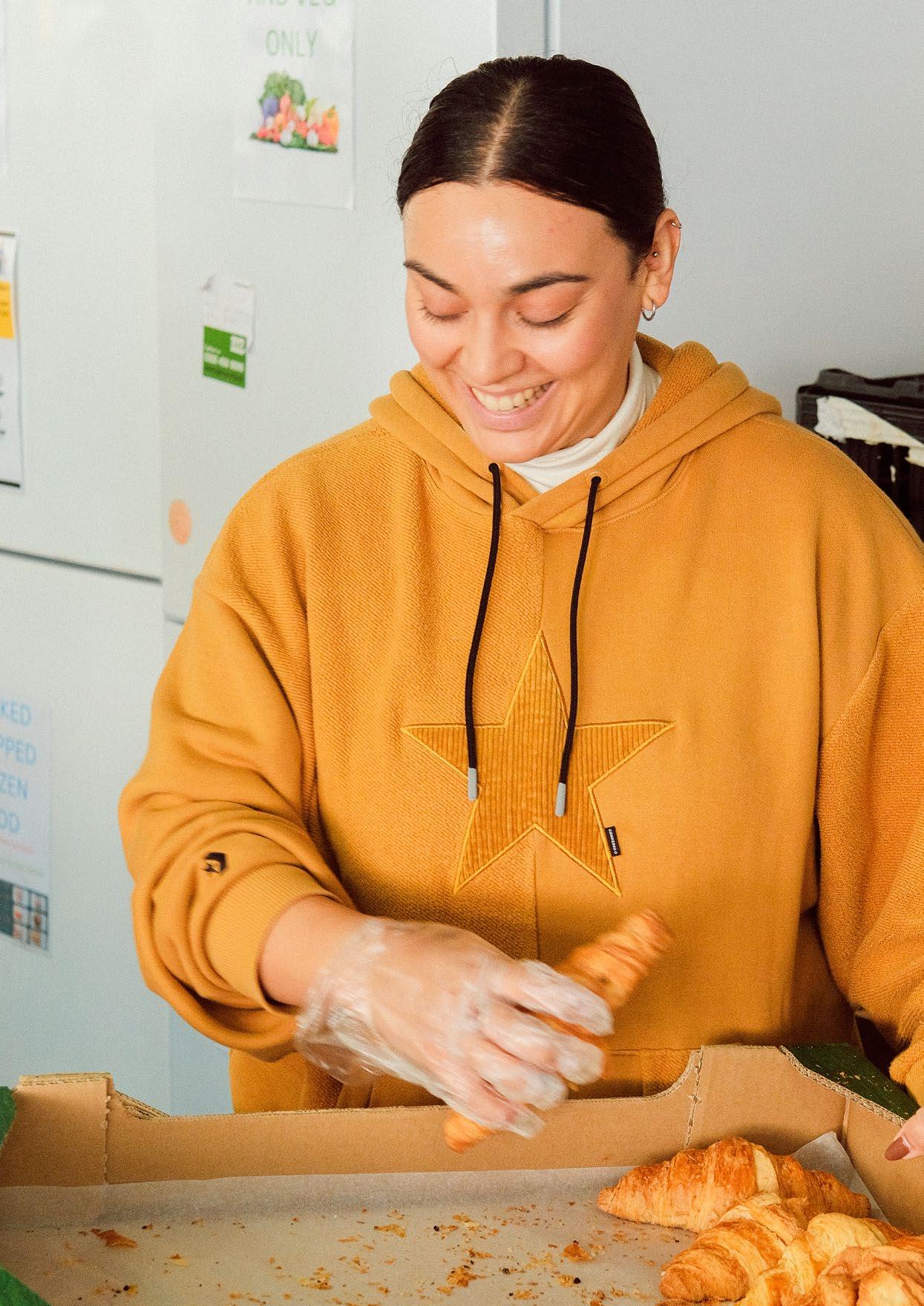
A young gentleman had never cooked at home or even tried. He came to the cooking classes and was so empowered that he went home and cooked a curry for his family!"
- Food Hub volunteer
Llanelli is characterised as economically disadvantaged, with high levels of poverty. This project has given us the ability to upskill young people and increase their employment opportunities, support people who are experiencing tech poverty, and reuse items that were going to be thrown away. The entire project was a perfect example of a circular economy which built more resilience and sustainability in a post-industrial area.”
- Foothold Cymru, Llanelli
Electronic waste (e-waste) is the fastest growing waste stream in the world, and one Hubbub’s been working on tackling since 2020. Our first Time After Time e-waste fund, supported by Virgin Media O2, gave grants of £10,000-£75,000 to 10 varied projects to tackle e-waste. Projects ranged from extending the life of products through repair to boosting reuse, recycling and raising public awareness through workshops and digital campaigns.
For example, Foothold Cymru in Llanelli trained young people facing barriers to education and employment to repair and recycle electrical items from the local community. They saved over 300 items from going to landfill, enabling 70kg of electronics to be redistributed locally. The project not only upskilled the participants, but also helped address digital exclusion
in the local area. Items rehomed included to a refugee from Syria, a local student whose laptop has been lost in a fire and an elderly woman lacking digital access, among many others.
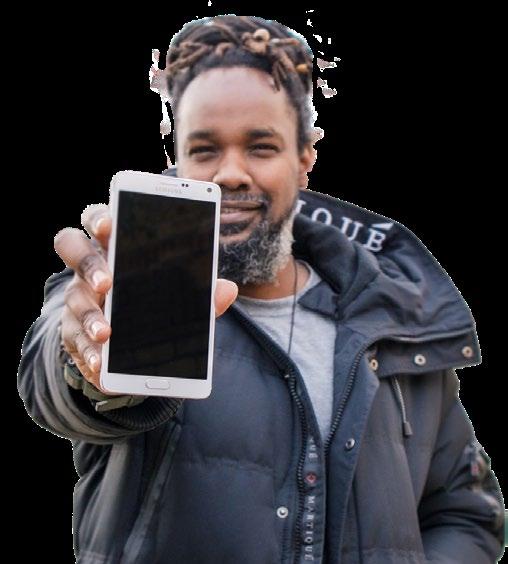

Why? E-waste is the world’s fastest growing waste stream and communities have innovative ideas to help tackle it at a local level
29,320 times people engaged on e-waste
6,352 electrical items have been redistributed, repaired or recycled
269 people transformed their habits or behaviour e.g. learnt tech repair skills
Improved confidence and employability skills for 26 young ‘e-waste ambassadors’, who’d faced barriers to education and employment
Behaviour: more people taking action to avoid e-waste by repairing, reusing or recycling tech
At Hubbub, we're all about making sustainability mainstream. So, this year we ramped up our communications. We doubled down on TikTok, launched a new strategy to reach and influence businesses and government and scaled up our major campaigns – with a big focus on food and sustainable diets.
We've shifted attitudes and behaviours on key issues, from plant-based diets to e-waste. We took our message to the masses with billboards, TV ads, and even podcasts.
We ignited conversation on social media, expanding our TikTok presence to inspire young people to take action. We reached
people over 3 million times on TikTok, bringing us to a total of 9.7 million impressions on social media. Alongside this, we ramped up our comms to business and government. This year we upskilled over 400 sustainability professionals through a new industry workshop series, and shared insights through op-eds, LinkedIn and our business bulletin. Our work was featured by titles including BBC News, ITV, Forbes and the Financial Times, and shared by organisations from DEFRA to Innocent Drinks.
Why? To inspire action that’s good for the environment, people must believe it’s possible, and worth it. For this to happen, we need to engage the mainstream in a meaningful way.
Over 3.7 million impressions on LinkedIn
4 million video views across social media
9 opinion pieces from our team in national newspapers and industry publications
We’re a nation of hot drink lovers, and for two-thirds of us, that means dairy milk every time. But our research showed that people’s hot drink habits were ripe for a change: over half of Brits said they were open to drinking less dairy but haven’t made the switch yet. So we launched ‘Find Your Oooh, Without The Moo’, a campaign funded by Starbucks, to help the plantcurious among us to explore the world of oat, soy, almond and more.
We wanted to move our audience from feeling ‘meh’ to ‘magical’ about plant milk, emphasising the fun and flavour of discovering a plant milk match. Targeting 25–34-year-olds, comms ranged from social media, posters and billboards and podcast ads to interactive pop-ups at Battersea Power Station.
Why? Oat, almond and soy milk generate between 68% and 77% fewer greenhouse gas emissions than dairy milk.2 And while over half of people in the UK are open to drinking less dairy, most still drink it every day.
15% 25- to 34-year-olds who had seen the campaign, and who had never tried plant milk before, said they have now tried plant milk3
50% of 25- to 34-year-olds who drink plant milk and saw campaign messaging drink more plant milk than a year ago
13% of 25- to 34-year-olds who saw the campaign tried plant-based products in other areas of their diet and industry publications
Behaviour: more people opting for plant milk over dairy (and eating more plants in general)
2 See Hubbub's website for the full calculation and sources.
3 Representative polling of 1,000 25-to-34-year-olds, carried out by 7Stars in June 2024

Love this! I didn’t know which plant milk would be for me and now I do.”
- Battersea Power Station Shopper
Eat Your Pumpkin returned this year, focusing on helping families with young children establish a new Halloween tradition: decorating and eating their pumpkins together. Supported by Starbucks, the campaign featured collaborations with influencers including Mob Kitchen’s Seema Pankhania, podcast hosts Jessie & Lennie Ware (Table Manners) and Chris & Rosie Ramsey (Shagged Married Annoyed),
and a partnership with the parenting community, Netmums.
We created a new film that aired on Channel 4 and online throughout October, reaching our target audience more than 18 million times. And to bring the digital campaign to life offline, we funded 109 local groups to host 211 community events across the UK and gave away 200,000 free pumpkin decorating sticker packs in Starbucks stores across the UK.
Why?
Frighteningly, about half of the pumpkins bought at Halloween are thought to go uneaten, making them a good hook to talk about food waste
24.9 million impressions amongst our target audience
72 pieces of press coverage in titles from The Week Junior to The Mail and Delicious Magazine.
11.7 million pumpkins eaten rather than binned4
People who saw the campaign were 20% more likely to have eaten their pumpkin after Halloween 2024 than those who did not recall seeing the campaign
Behaviour: more people decorating and eating their pumpkins (and more aware of their food waste at other times too)
4 This is an indicator as behaviour changes are driven by a range of factors, that may be external to the campaign.
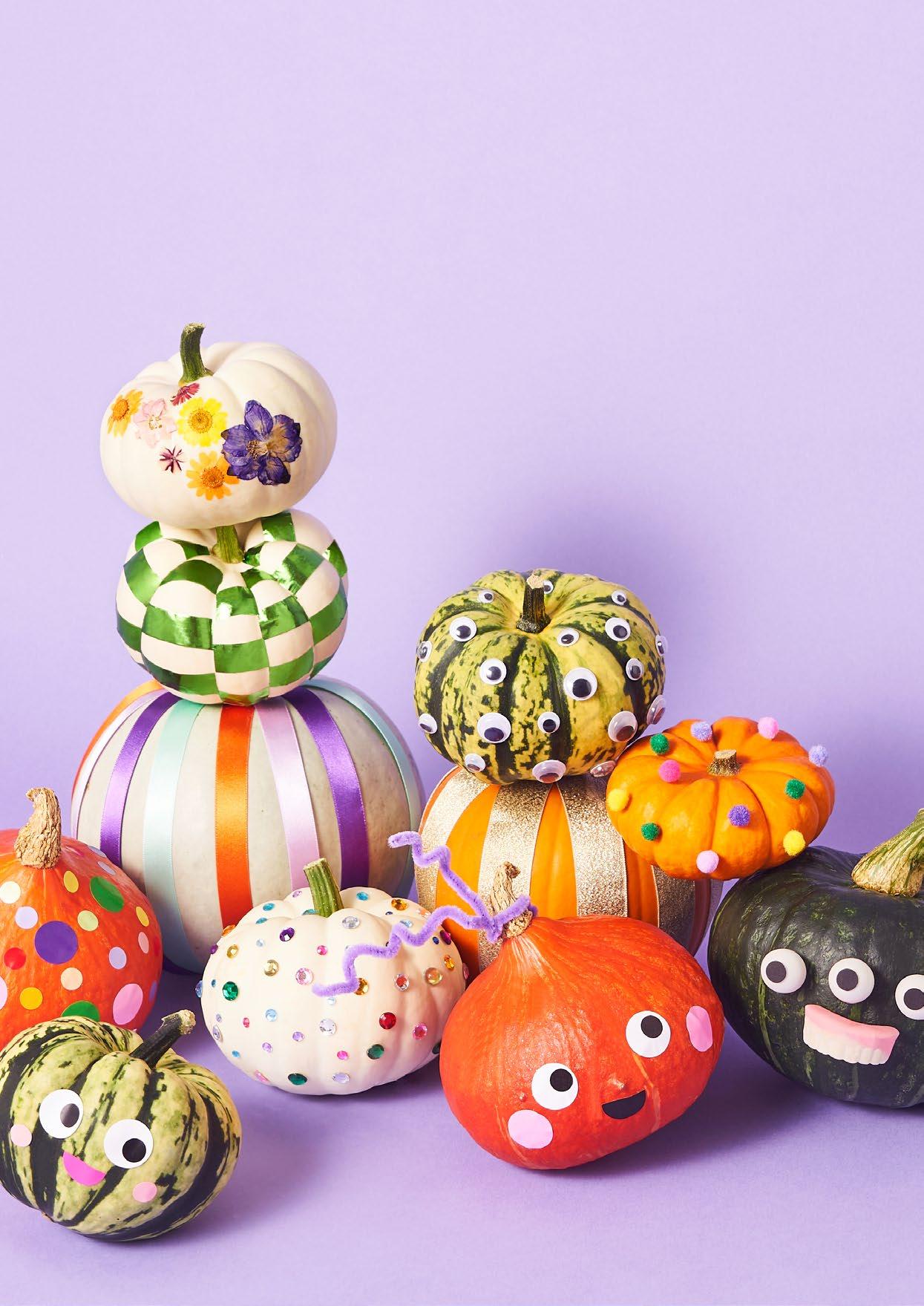
The event was fab! My stomach is full of lovely pumpkin, my heart is full for community events like this and my head is full of ideas of what I can do at home with pumpkin"
- 32 year old mum of three –Transition Dundee
Participating in the e-waste Idea-thon was a truly eye-opening experience. I learned so much about the scale of the e-waste problem and the intricate challenges involved in managing it. One key takeaway was the importance of a multi-faceted approach that includes innovative design, efficient recycling processes, and strong public awareness campaigns.”
Student hackathon participant
Time After Time is building hype around tech circularity, thanks to support from Virgin Media O2. Our innovative approach, created by Gen Z for Gen Z, has reached over 11,000 students in the last year, working with Unite Students. We’re shifting the way young people think
about their tech, through our hackathons – bringing students together to problemsolve around repairing and recycling tech – to our eye-catching pop-up flip phone, and fun, conversational and informative content on TikTok.
Why? Gen Z are the least likely to know that tech contains rare and valuable metals and elements, and the most likely to have thrown a phone in the general waste bin at home (Hubbub, 2023)
73,374 times people engaged on e-waste, mostly on TikTok
97% of 99 surveyed said they learnt something new and 89% intend to take action to reduce e-waste
Behaviour: more young people taking action to avoid e-waste by repairing, reusing or recycling devices
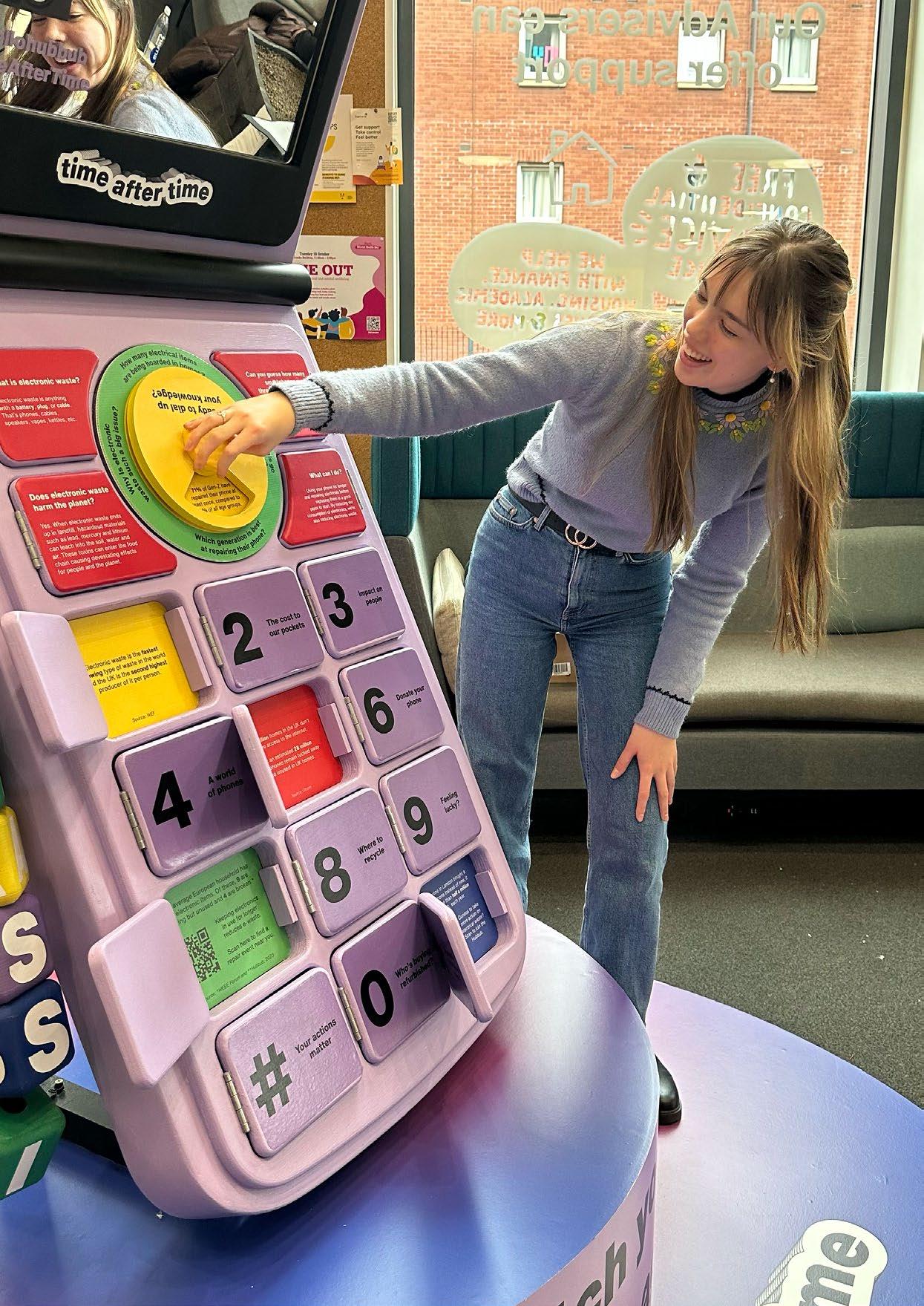
Net zero gets talked about a lot, and whilst the phrase may be familiar to many, for the average person it remains highly politicised and somewhat abstract, with low awareness of what it means for them in practical terms. As a result, many households aren’t aware of or engaged with the role they have to play in helping the UK combat climate change – or how these changes could benefit them. To bridge this gap, we partnered with a cohort of leading businesses including B&Q, Barratt Redrow, Starbucks UK, TSB, Unilever UK and Virgin Media O2 to run Home Advantage, a three-month research and engagement project with 175 homeowners to understand their barriers to sustainable living. From their food to
clothes and electronics and how they heat and power their homes, we gave a reality check on net zero and what it means for the average home.
We’re sharing our findings with policymakers and businesses at a House of Commons event in February 2025. Our goal is to influence future campaigns and policies to support households with practical steps to do their bit to help the UK reach net zero – like reducing their meat consumption and moving away from gas and oil.
If you’re looking to help households take meaningful steps towards net zero, we’d love to speak to you.

Why? A third of the emissions cuts we need by 2035 depend on individual households5. But most people don't know how to make a difference or feel put off by the polarization of the debate around net zero.
175 households gave their views and most took action: 74% felt more confident to reduce food waste; 67% to reduce their boiler flow rate
Recommendations to be shared with business and government at a House of Commons event and in a forthcoming report
Behaviour: household net zero actions from reducing meat and dairy, to repairing household items, and cutting energy use
5 House of Lords Environment Committee, calculated with the Climate Change Committee ‘In Our Hands’ (2022)
6 Representative polling of 501 UK homeowners, aged 25+, with a household income of >£50,000 and middling environmental attitudes - carried out by Censuswide in January 2025

75% of UK homeowners polled are ready to make changes to reach net zero, with the right support from business and government6

From tackling littering at community kickabouts, encouraging binning across the UK’s highways, byways and beaches, to city-wide collaborations, over the last 10 years we’ve spent a lot of time talking trash at Hubbub. Our approach is to keep it simple and always start with behavioural
insight exploring why people behave the way they do.
In 2024, we scaled our work by sharing our learnings and providing funding so others could give our tried and tested ideas a go:
Why? The UK produces a lot of waste and recycling when out and about. Our proven, playful approach helps cash-strapped councils and others increase recycling rates and reduce litter.
The Neat Streets website created with support from McDonald’s brings together litter case studies, how-to guides and offers up five replicable campaigns, plus funding
3,400 Neat Streets website visits, 43 assets downloaded
286,000 items recycled with grant funding from In The Loop support from Coca-Cola, McDonald’s and Natural Source Waters to help 10 councils and others implement improved recycling on-the-go
Behaviour: more people recycling on-the-go, and more rubbish binned
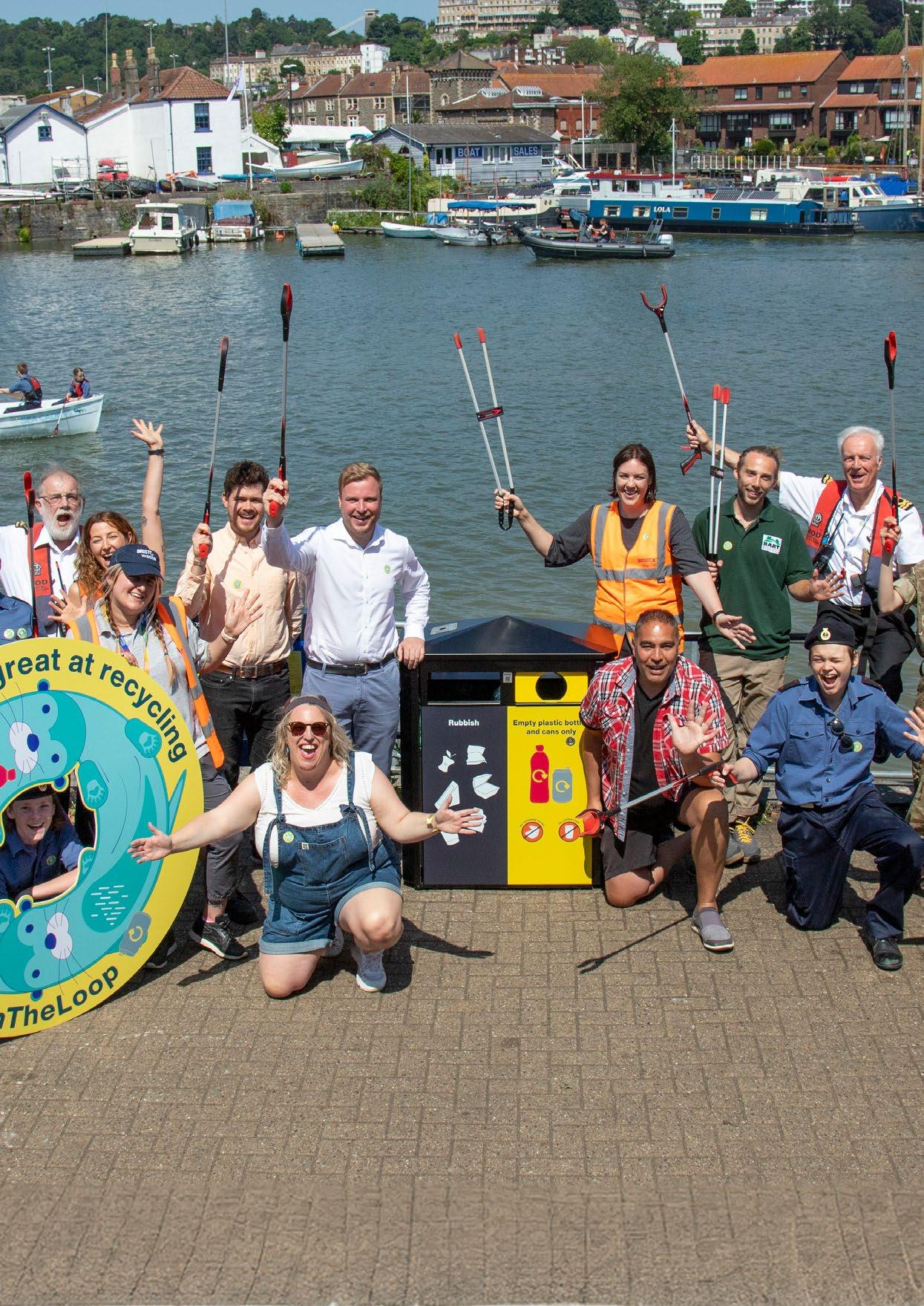
We’re really delighted to see how successfully the bins have been received and used. Using the #InTheLoop Toolkit, we’ve been able to capture good quality recycling from the bins.”
- Sarah Burns, Innovation and Sustainability Manager for Bristol Waste Company
Having a community fridge in our town has brought us together in ways we didn’t expect. It’s shown us how small actions can make a big difference."
Our partnership with Co-op has enabled the Community Fridge Network to become a national movement, saving over two million meals a month from going to waste. Yet the impacts go beyond food redistribution. Community fridges are places where people learn new skills, form meaningful connections, and lead local sustainability efforts.
In 2024, Brewgooder’s Filla beer campaign helped shine a spotlight on the
network, with every purchase helping to support a fridge, while Stella Artois’ community campaigns helped reach new audiences. 2025 will see expansion to establish fridges in new areas, as well as more community support and collaboration. If you’re looking to connect with communities and drive meaningful action on food waste, we’d love to speak to you about we can take this impact even further.
700 fridges across the UK
Over 793,000 visitors
Saving over 10,200 tonnes of food from going to waste –equivalent to 24.2 million meals
Behaviour: sharing surplus to prevent good food from going to waste
Reducing food waste and supporting access to food in communities continue to be key priorities for Co-op. Working with the Community Fridge Network enables us to do both in a long-lasting and sustainable way. We are proud to have helped double the network, bringing people together to support fair access to food for all members of the community and providing places to learn new skills and address local issues. We know that now community fridges have become a national movement, the network will continue to achieve fantastic outcomes into the future.”

- David Luckin, Head of Community Partnerships, Funding and Impact, Co-op

The ambition of our partnership with Starbucks, launched in 2018, is to build stronger, greener communities. That supports three key strands of Hubbub’s work: reducing the environmental impact of single-use cups and incentivising greater uptake of reuse, improving access and connection to nature, and
making the most of our food. Funding has supported a range of projects described throughout this report, from the award-winning Eat Your Pumpkin campaign, to the Greener Communities Fund in partnership with NHS Charities Together, and the ever-growing food hubs.
Over £2.5 million awarded in grant funding to support innovative projects and grass roots community groups
7,892 people participated in a green space funded by the Starbucks partnership
Over 300 Starbucks partners (employees) got involved in a project with Hubbub
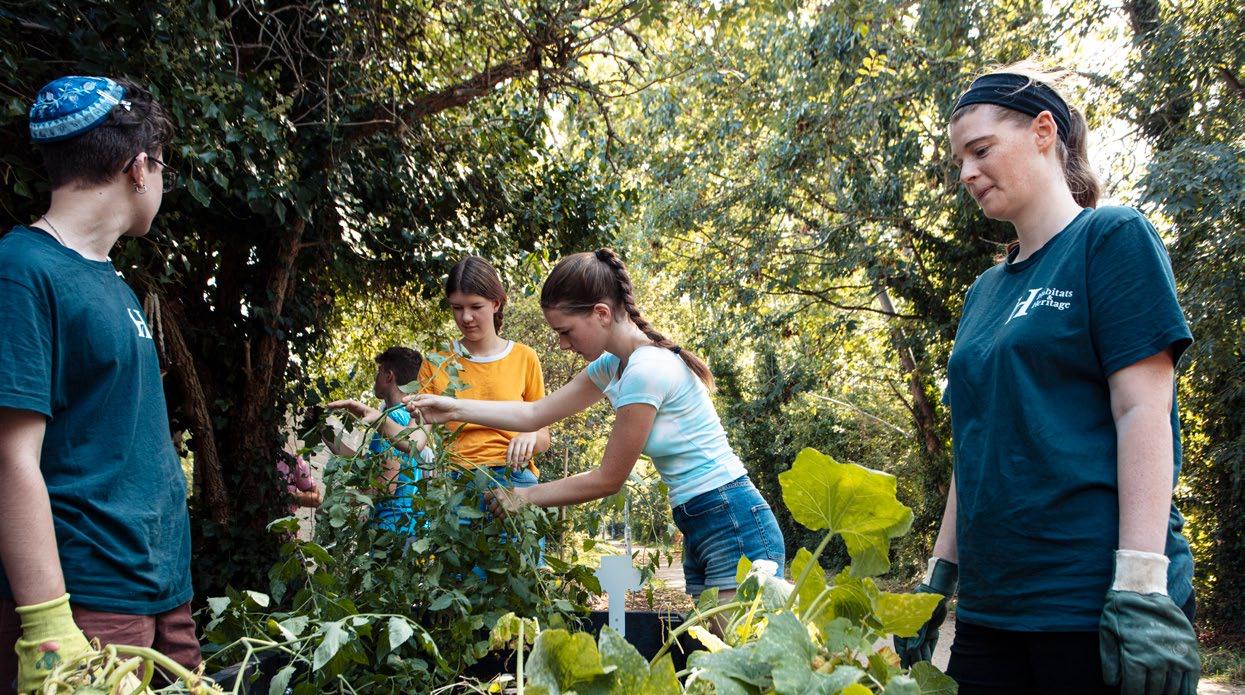
We’re proud of another year of partnering with Hubbub on a wide range of projects. It's been fantastic to see the new green spaces created within communities and healthcare settings, as well an extra 100 food hubs around the UK, all helping to bring communities together around food and nature. Together, we’ve been able to help drive change in multiple ways, from behavioural research initiatives to providing funding for innovations in the food waste space.”
- Aoife Harrison, Senior Manager, Sustainability & Social Impact - Starbucks UK
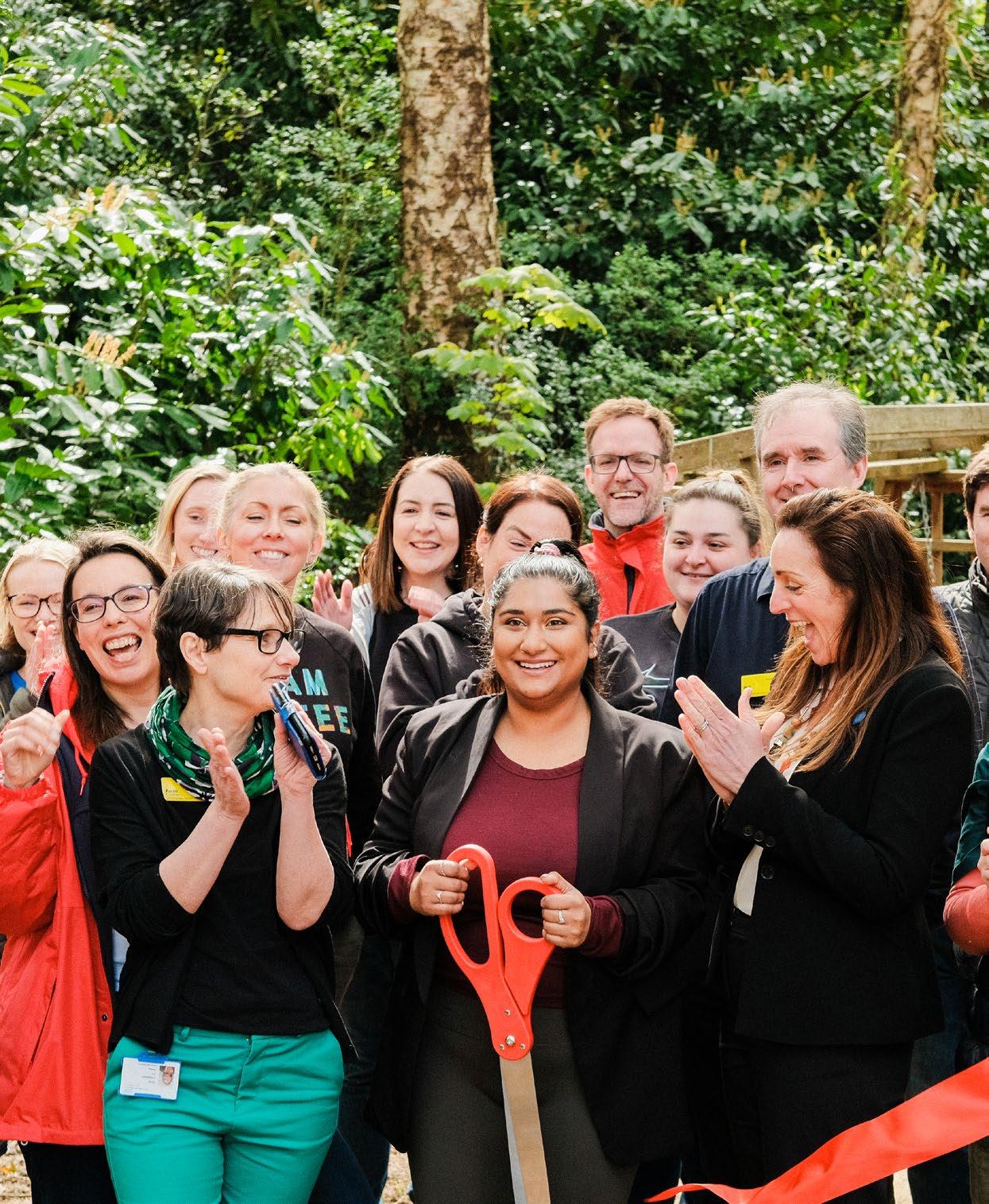
In Our Nature is a collaborative partnership funded by The National Lottery Climate Action Fund, with additional funding from the Wates Family Enterprise Trust. It brings together Manchester Climate Change Agency, Hubbub, Groundwork Greater Manchester, Amity, The Tyndall Centre for Climate Research, Chrysalis Research and Manchester City Council with a shared ambition to make Manchester a greener, healthier and more connected city.
The final year of In Our Nature (which concludes in summer 2025) is focused on deepening the impact of our work with communities. We’ve partnered with 40 community groups to co-create solutions that create meaningful change, from embedding a culture of repair, to reducing food waste. Working with the SNUG Green Space project in Longsight, we provided social media training to amplify their messages and bespoke resources designed to reach Urduspeaking audiences.
90,000 people engaged
206 people transformed – with skills and resources for long-lasting behaviour change
7 in 10 people involved in In Our Nature projects to date said they learnt that ‘there are choices about how everyday things are done and that we can choose options that reduce our carbon footprint’
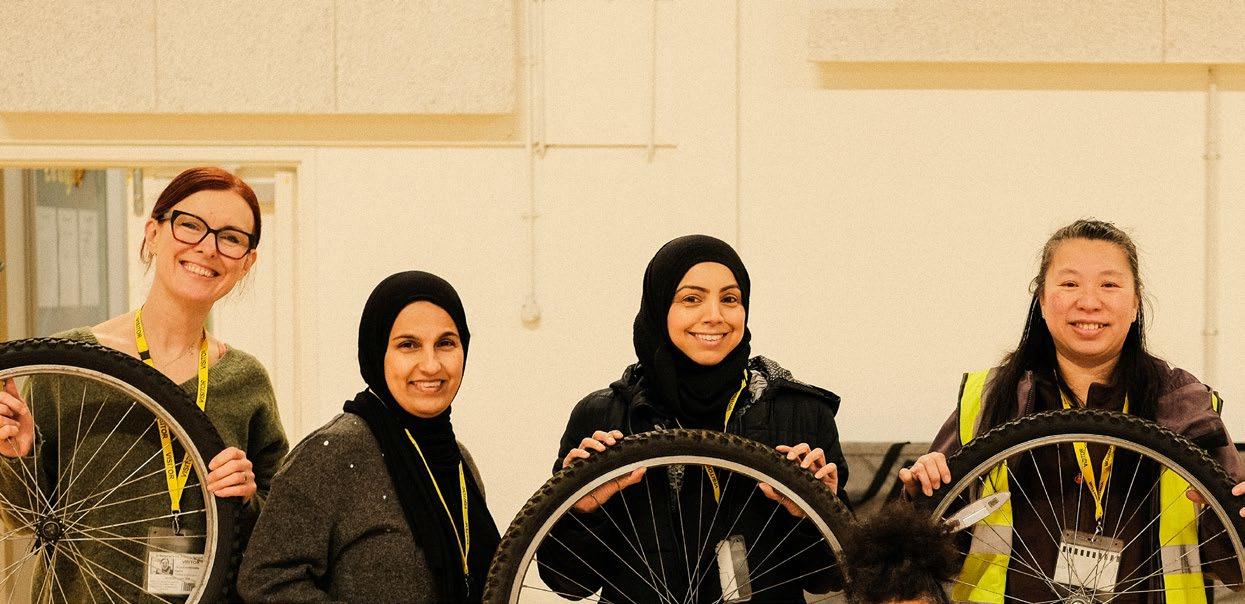
To have the support and the expertise to be able to get that designed and created has been really helpful. And then with these workshops that we've run these last few weeks; I think it's just raised the profile of what we're doing in the space.”
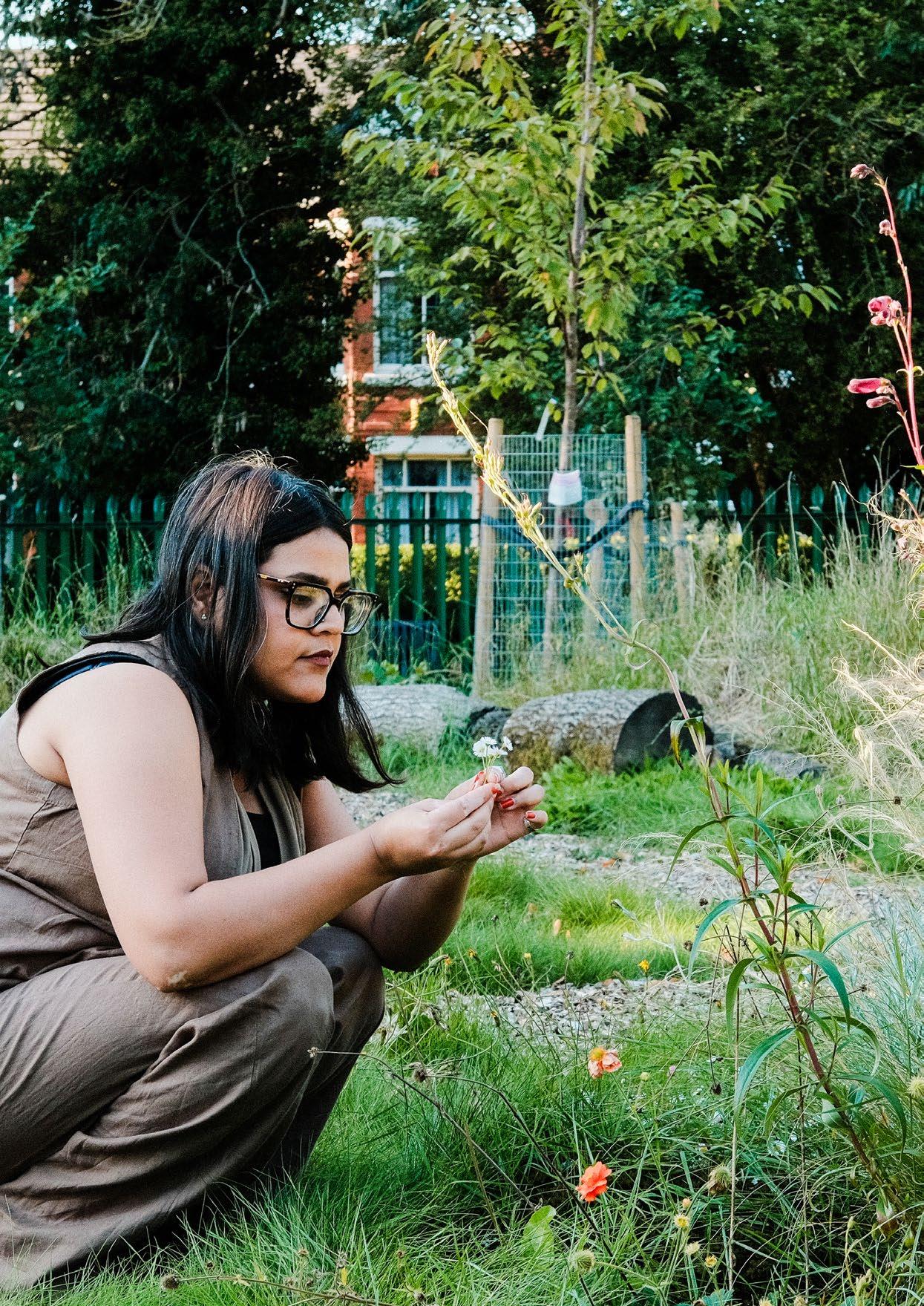


Our partnership with Virgin Media O2 supports the ambitions set out in their Better Connections Plan: together we’re working to create a zero-carbon future, give unused tech a second life and ensure everyone can stay connected.
We're connecting more people with technology through our programs:
I
Community Calling connects people with refurbished devices, Tech Lending Community lends out tablets, and Future Fixers teaches young people repair skills. We also ran on-campus activities and created TikTok content to reach Gen-Z, and launched a second £500,000 grant fund to support digital inclusion and reduce electronic waste.
Over 21,000 people to date connected using refurbished donated devices via Community Calling (over 3,000 in 2024)
£500,000 in grant funding awarded via Time After Time to tackle electronic waste and support digital inclusion

Our partnership with Hubbub has taken our focus on circularity to the next level and added a digital inclusion element to our work in this space.”
- Dana Haiden, Chief Sustainability Officer, Virgin Media O2
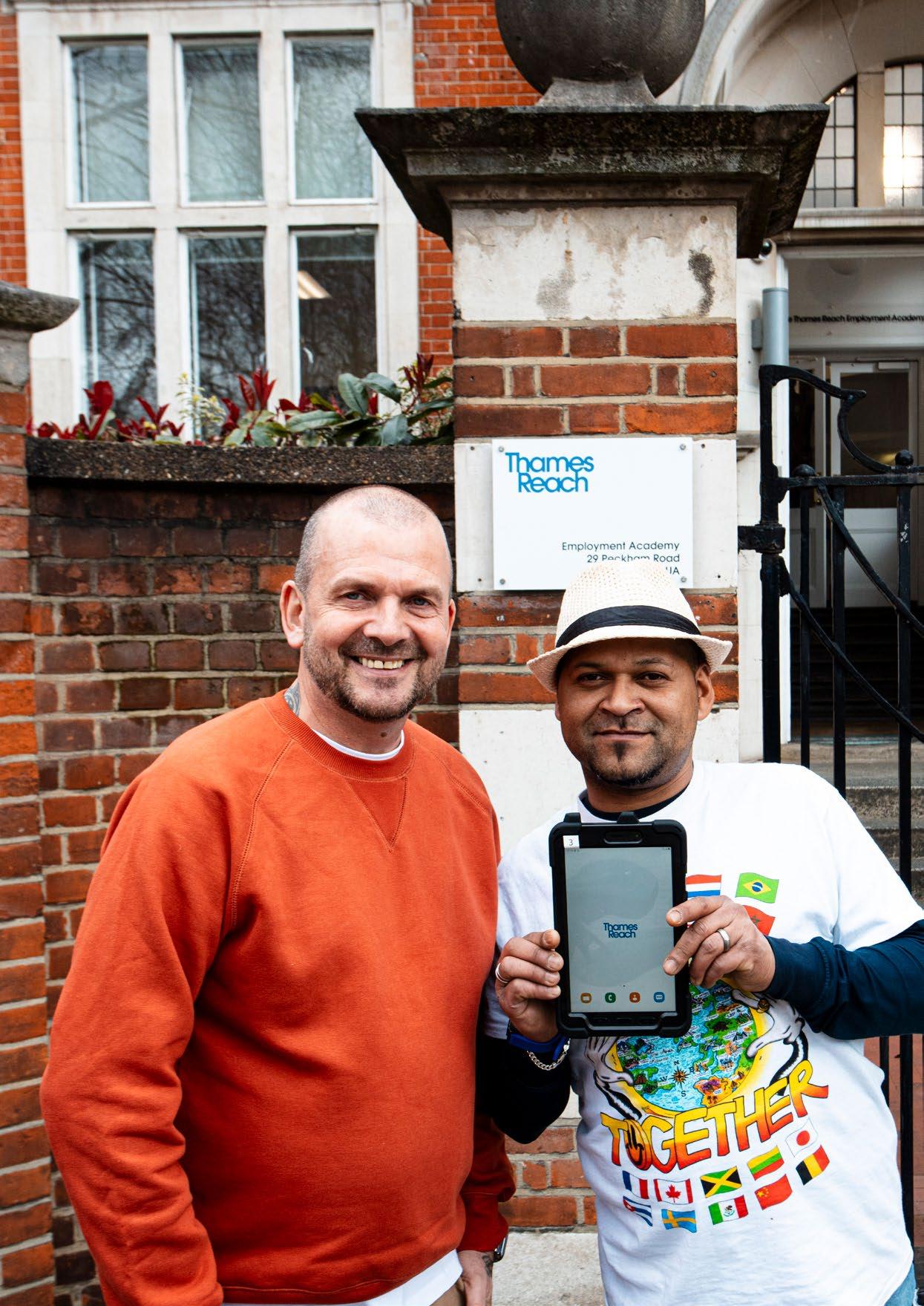
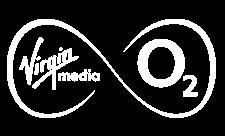
We’re doubling down on scaling our impact and creating national momentum for broadbased environmental action. First, by connecting with mainstream audiences and showing them that taking action is possible and worthwhile. Secondly, by strengthening our 1,000 plus strong network of community groups, enabling them to go further, creating deeper, longer-lasting impact. We’ll continue to focus on impact measurement to evidence the difference our work makes and how it helps our partners work towards their goals. We’ll do so with a focus on our three priority topic areas, where we believe we can have the most impact.
As this report shows, there’s a powerful connection between community, nature and positive environmental behaviour. We’ll deepen our understanding of this link and expand our support to enable more groups to gain access to capacity building and funding to use nature as a catalyst for broader environmental action.
Eating less meat and dairy is one of the most impactful ways to take environmental action and it’s better for our health and pockets too. But it can be contentious. We’ll explore the dietary habits of younger generations, reinforce plant-based choices by building on the success of our Find Your Oooh Without The Moo campaign, and integrate sustainable diet initiatives into our community projects.
Moving towards a circular economy is one of the biggest challenges of our time, and waste can be a great way to engage the public on environmental action. As well as launching an exciting new antilitter product, we’ll explore ways to build and expand our e-waste work, innovate to expand and scale our food waste activities and move up the waste hierarchy for a focus on reuse.
We’re committed to running our organisation in the best way we possibly can. This means minimising our own environmental impact, prioritising our team’s wellbeing, shaping a more inclusive culture and reimagining how we give grants and measure our impact. And that’s just the beginning.
For the third year running, we’ve calculated our emissions using GHG protocol standards via Compare Your Footprint. Our total Scope 1, 2 and 3 emissions are 677 tCO2e which have decreased by 77 tCO2e. Read our blog on our emissions journey to find out more.
We’ve done this by strengthening our environmental policy to guide our team towards low-emission practices, optimised our project material inventory to enable reuse of our resources, switched to sustainable printers, Jump, reduced our website emissions by switching to a greener host and simplified user experience and used our influence at Somerset House by running a clothes swap for other residents in our community.
Next year we’ll continue gathering more accurate data from long-term partners, prioritise sustainability with new partners and put a big focus on reducing our digital footprint. We'll also seek to minimise emissions associated with our new antilittering product.
As a grant giver, we’ve built on our commitment to IVAR principles of transparent and open grant making by simplifying our application and onboarding process to be more consistent and accessible. Combined with enhanced guidance, and a webinar sharing tips for those who were previously unsuccessful, we have received higher quality applications (and fewer ineligible ones.)

Support from Hubbub has always been really positive and the information required is not onerous like some funders. Hubbub show genuine interest in the projects you support.”
- Grant
At Hubbub, our team is our greatest asset. In 2024:
3.3 out 4 - We maintained a high average score on our annual staff survey.
3.8 out of 4 - Net Promoter Score agreeing "I would recommend Hubbub as a great place to work".
Won the Best Company to Work For (Public Sector/Not for Profit) in the 2024 Company Culture Awards.

I absolutely love working at Hubbub - amongst things I value most are the flexibility, trust and kindness of my colleagues, the excellent guidance of my line manager, and the approachability and warmth of senior leadership.”
We’ve had a big focus on improving our understanding of EDI at all levels of the organisation. This year we’ve run full-team, leadership and board learning sessions with Spark Insights, run a protected characteristics survey to explore how we can further support disabled and racialised employees, taken part in The RACE Report for the third year running and published our own EDI data (below). We’ve supported the team with enhanced counselling sessions, improved line manager training on mental health and neurodiversity, and refined our
policies to support neurodiversity, periods, menopause, mental health and enhanced our parental leave pay.
Next year, we’re aiming to improve inclusive communication and make processes more accessible, improve our manager’s capabilities, look at how we can foster mentoring opportunities for people with protected characteristics, continue to refine our policies, plus sharing and listening to learnings from our sector and networks.
Thank you to our Board of Trustees:
Heartfelt thank you to our Board of Trustees for their time, commitment and invaluable wisdom. A special thank you to our Chair, Catherine Brown, who will be stepping down in 2025. Her guidance, wisdom, support and challenge has had a huge impact on Hubbub and our work.
Catherine Brown, Rhea Fofana, Jonathan Katz, Ryan Kohn, Stephanie Lambert, Deborah Luffman, Dan Smith, Beth Thompson.
Thank you to all our funders who’ve made it all possible:
1 Oak Limited
23.5 Degrees Ltd
AB In-Bev UK Limited
Abel & Cole
AM Coffee Retail Limited
Arabica Coffee Limited
Barratt Redrow PLC
Brian Lodge
Bunzl Plc
Burger King Limited
Burton & Speke Limited
CAF
Cafe Fortune
Caffe Nero Group Ltd
Center Parcs
ChangeX
Cineworld Cinemas ltd
City Bridge Foundation
Climate Outreach
Co-operative Group Limited
Cobra Coffee
Costa
Crema Ltd
Ecosurety
EG Group
Egspresso Ltd
Elite Coffee
Gloucestershire County Council
Goosegrass
Great Yarmouth Borough Council
Hargreaves Lansdown plc
ICICI Bank UK PLC
IKEA Ltd
Immediate Media
Innocent Ltd
John Lewis and Partners
Joint Trade Association Ltd - (JTAC)
Kbeverages Ltd
KFC
Kindred Soul Ltd
London Marathon Events
Manchester Climate Change Agency
McDonald’s UK
Milton Keynes Community Funds
Mitsubishi HC Capital UK PLC.
Mr B Horgan
Natural Source Waters Association, Limited
OCO Westend
OVO (S) Energy Solutions Ltd
Pets at Home
Playtech Plc
Poplar Harca
Pret A Manger (Europe) Ltd
Queensway
Renewi UK Services Limited
Soul Coffee House
Southwark Council
Springer Nature Ltd
SSP Financing UK Limited
Starbucks Coffee Company (UK) Ltd
Telefonica UK Ltd
TERRACYCLE UK LTD
The Bentley Foundation
The John Ellerman foundation
The Magic Beans Co
The National Lottery Community Fund
TMHCC
Treats Foods Limited
TSB Bank plc
UBS
Unilever UK Ltd
University of Birmingham
Village Hotel Club
Virgin Media
Welcome Break